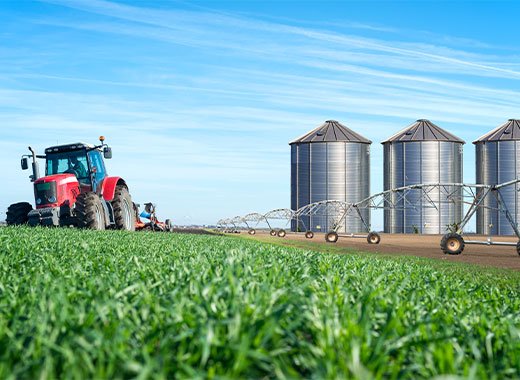
Export subsidy is a type of financial assistance provided by the government to exporters to encourage the export of specific goods.
In India, the government provides export subsidies for various agricultural commodities to promote their exports and increase the income of farmers.
One of the main agricultural commodities for which India provides export subsidies is rice. The government offers subsidies to rice exporters to make their exports competitive in the international market. Similarly, other agricultural commodities such as wheat, sugar, and cotton also receive export subsidies from the government.
The objective of providing export subsidies for agricultural commodities is to ensure that Indian farmers get fair prices for their produce in the international market. The subsidy helps to cover the costs incurred in production and transportation and enables exporters to sell their produce at competitive prices. This, in turn, encourages more farmers to grow these crops, leading to increased production and income.
The government of India has various schemes for providing export subsidies for agricultural commodities, such as the Merchandise Exports from India Scheme (MEIS) and the Transport and Marketing Assistance Scheme (TMA). These schemes offer incentives to exporters based on the quantity and value of their exports, and the subsidies are credited to their bank accounts.
However, it is important to note that export subsidies are often controversial, as they can distort international trade and give an unfair advantage to domestic producers. In recent years, there has been a move towards phasing out export subsidies and promoting free and fair trade in the international market. Nevertheless, export subsidies for agricultural commodities remain an important policy tool for the government of India to support the livelihoods of farmers and promote agricultural exports.
How to apply?
If you are an agricultural exporter in India and want to apply for export subsidies, you can follow the steps given below:
- Identify the scheme: The Government of India offers several schemes to provide export subsidies for agricultural commodities. You need to identify the scheme that is applicable to your product.
- Check eligibility: Once you have identified the scheme, you need to check if you are eligible for the subsidy. Eligibility criteria may vary for different schemes.
- Register with the relevant agency: To apply for export subsidies, you need to register with the relevant agency. For example, for the MEIS scheme, you need to register with the Director-General of Foreign Trade (DGFT) or its regional offices.
- Submit the application:After registration, you need to submit the application for the subsidy. The application process may be online or offline, depending on the scheme.
- Submit required documents: Along with the application, you need to submit the required documents, such as invoices, bills of lading, shipping bills, and other relevant documents.
- Follow up on the application: After submitting the application, you need to follow up on its status regularly. You can check the status of your application through the online portal or by contacting the relevant agency.
Important!
In summary, to apply for export subsidies for agricultural commodities in India, you need to identify the applicable scheme, check eligibility, register with the relevant agency, submit the application, submit the required documents, and follow up on the application. It is advisable to keep track of the latest developments and changes in the schemes to ensure that you are availing of the most beneficial subsidies.
The Government of Gujarat provides export subsidies to agricultural exporters in the state, such as rice, cotton, and spices, to promote their exports and boost the income of farmers.
The Government of India provides various export subsidies for agricultural commodities, such as rice and cotton, through schemes like the Merchandise Exports from India Scheme (MEIS) and the Transport and Marketing Assistance Scheme (TMA) to support the livelihoods of farmers.